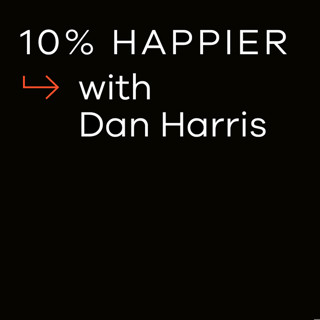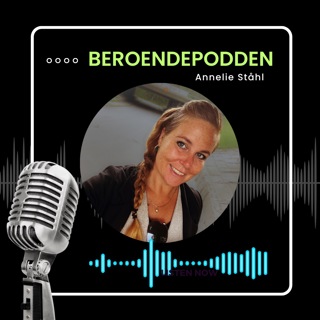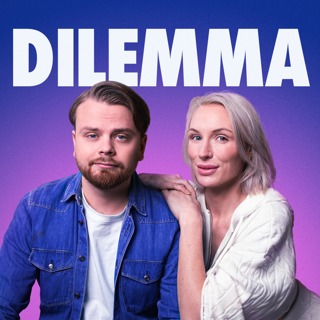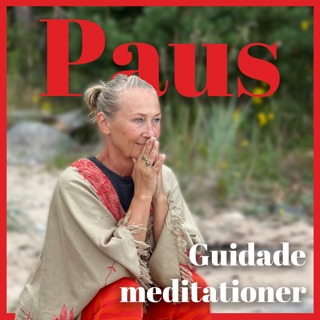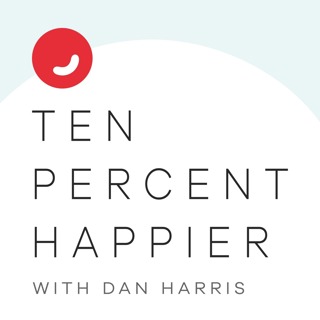
What Everyone Who Meditates Should Know | Chenxing Han and Duncan Ryūken Williams
If you meditate (or do yoga, for that matter), you may have been taught by a Westerner, but you owe a gigantic debt of gratitude to the giants and geniuses in Asia who developed these practices. This fact can be overlooked or downplayed -- intentionally or otherwise -- by Western practitioners, including, sometimes, me. However, in the midst of a spike of anti-Asian violence, now seems like a very good time to learn more about where these practices came from, and why many Asian-American Buddhists sometimes feel erased. Not only is this the right thing to do, but it can also add depth and perspective and freshness to your practice. In this episode, we have two fascinating guests who will talk about what it’s been like for them to be Asian American Buddhists in the midst of this spate of hate crimes, and walk us through the long and ugly history of anti-Buddhist violence in America. We also talk about: how all meditators (not just people in vulnerable communities) can learn resiliency through meditation; the connection between karma and reparations; and whether it’s possible, or advisable, to generate goodwill towards people who hate you. We also have a frank conversation about how some of my own messaging about Buddhism in America has missed the mark. My guests are: Chenxing Han, who is the author of Be the Refuge: Raising the Voices of Asian American Buddhists. She holds a BA from Stanford and an MA in Buddhist Studies from the Graduate Theological Union. And, Duncan Ryūken Williams, who is the author of American Sutra: A Story of Faith and Freedom in the Second World War. He has a B.A. in Religious Studies from Reed and a Ph.D. in Religion from Harvard. He is currently a professor at the University of Southern California. He’s also a Zen priest. Both Duncan and Chenxing are helping to organize a national ceremony -- which will take place the day after we post this interview -- on the 49-day anniversary of the Atlanta spa shootings that took the lives of several Asians and Asian-Americans. (For more on that ceremony, click here: https://www.maywegather.org/) One thing to say before we dive in: we are dedicating this whole week to the spike in hate crimes against members of the AAPI community. On Wednesday, we’ll talk to Mushim Ikeda, a Buddhist teacher, about how all of us can use meditation to deal with anger, uncertainty, and self-loathing. And two more items of business: first, are you interested in teaching mindfulness to teens? Looking to carve your own path and share this practice in a way that feels real, authentic, and relevant in today’s world? Our friends at iBme are accepting applications for their Mindfulness Teacher Training program - catered towards working with teens and young adults. The last round of applications are due May 15th and scholarships are available. For more information and to apply, check out: https://ibme.com/mindfulness-teacher-training/ And second, we want to deeply thank and recognize mental health professionals for your support. For a year's FREE access to the app and hundreds of meditations and resources visit: https://www.tenpercent.com/mentalhealth Full Shownotes: https://www.tenpercent.com/podcast-episode/chenxing-han-duncan-ryuken-williams-343
3 Maj 20211h 6min

The Science of Building Better Relationships | Marissa King
The idea of networking can be fraught. For some people, it might, at times, seem either icky or pathetic to deliberately try to make friends, either in a personal or professional context -- especially since so many of us may be feeling a bit socially awkward anyway, after months of Covid restrictions. However, my guest today will argue that there are profound health benefits to building positive relationships, and she has advice about how to actually do it, based on neuroscience and psychology. Marissa King is a Professor of Organizational Behavior at the Yale School of Management, where she studies social networks, social influence, and team dynamics. She is also the author of a recently-released book, called Social Chemistry: Decoding the Patterns of Human Connection. In this conversation, we talk about: how your social networks impact your mental health; how, when it comes to social networks, quality and structure are more important than quantity; why you’re not as bad at being social as you may think; the importance of humor; how status and privilege play into networking; the benefits of calling up old friends you haven’t spoken to in a while; and she will ask you to consider whether you are a convener, a broker, or an expansionist. This is actually part two of a two-part series that we're running this week about the hard science and soft skills of social connection. If you missed it on Monday, we had an amazing interview with a researcher named Barbara Fredrickson from UNC Chapel Hill. She has a lot of fascinating things to say about what love actually is and takes a pretty broad view of the concept of love. You don't have to listen to that in order to understand this episode, but I think they work great in concert. One more item of business, and it is an invitation for you to participate in this show. In June, we’ll be launching a special series of podcast episodes focusing on anxiety, something I’m sure we’re all too familiar with. In this series, you’ll learn the mechanics of anxiety: how and why it shows up and what you may be doing to feed it. And this is where you come in. We’d love to hear from you with your questions about anxiety that experts will answer during our anxiety series on the podcast. So whether you’re struggling with social anxiety, anxiety about re-entering the world post-Covid, or have any other questions about anxiety - we want to hear from you. To submit a question or share a reflection call (646) 883-8326 and leave us a voicemail. If you’re outside the United States, you can email us a voice memo file in mp3 format to listener@tenpercent.com. The deadline for submissions is Wednesday, May 12th. And if you don't already have the Ten Percent Happier app, you can download it for free wherever you get your apps or by clicking here: https://www.tenpercent.com/?_branch_match_id=888540266380716858. Full Shownotes: https://www.tenpercent.com/podcast-episode/marissa-king-342
28 Apr 20211h 4min

The Art and Science of the World’s Gooiest Cliche | Barbara Fredrickson
One of our primary missions on this show is to rescue vital ideas that have lapsed into cliches. There are so many important concepts out there that many of us might be tempted to dismiss because they are encrusted with cultural baggage or have been reduced to potentially annoying or sappy slogans. So, for example, we’ve talked a lot on this podcast about things like: hope, gratitude, and “listening to your body.” All of which can sound like the type of empty bromide that your spin instructor yells at you while encouraging you to pedal faster. But, in fact, these are all incredibly important operating principles for a healthy life. And, not for nothing, they are all backed up by hard science. So today we’re going to tackle what may be the oldest and gooieset cliche of them all: love. The word has been ruined, in many ways, by Hollywood and pop songs. For many of us, the mere mention of the word conjures images of Tom Cruise, with tears in his eyes, while the string music swells, declaring, “You complete me.” But in my view, and in the view of my guest today, love needs to be usefully defined down. In other words, we need to knock love off its plinth, and apply it to a much wider range of human interactions. We also need to think of love not as something magical that requires luck or money or looks, but instead as a trainable skill -- one with profound implications for our health. Barbara Fredrickson is the Kenan Distinguished Professor in the Department of Psychology and Neuroscience at the University of North Carolina at Chapel Hill. She has written two books: one is called Positivity, the other is called Love 2.0. In this interview, we talk about how she defines love, based on her research; how meditation can help build this skill; how taking a few extra minutes to chat with people, even if you feel busy, can have psychological, physiological, and even professional benefits; and how to manage social anxiety as we emerge from our Covid cocoons. This episode is actually part one of a two-part series running this week on social connection. Coming up on Wednesday, we’ll hear from Marissa King, a professor at Yale who studies how to create social networks, even when it feels uncomfortable. And by social network, I don't mean something like Facebook. I mean actual networks of actual human beings that you see in person. She’s got a lot of practical and actionable advice about how to do that, even within the context of Covid. So be sure to listen in on Wednesday. One more item of business, and it is an invitation for you to participate in this show. In June, we’ll be launching a special series of podcast episodes focusing on anxiety, something I’m sure we’re all too familiar with. In this series, you’ll become intimately familiar with the mechanics of anxiety: how and why it shows up, and what you may be doing to feed it. And this is where you come in. We’d love to hear from you with your questions about anxiety that experts will answer during our anxiety series on the podcast. So whether you’re struggling with social anxiety, anxiety about re-entering the world post-Covid, or have any other questions about anxiety - we want to hear from you. To submit a question or share a reflection call (646) 883-8326 and leave us a voicemail with your name and phone number. If you’re outside the United States, you can email us a voice memo file in mp3 format to listener@tenpercent.com. The deadline for submissions is Wednesday, May 12th. And if you don't already have the Ten Percent Happier app, download it for free wherever you get your apps or by clicking here: https://www.tenpercent.com/?_branch_match_id=888540266380716858. Full Shownotes: https://www.tenpercent.com/podcast-episode/barbara-fredrickson-341
26 Apr 20211h 8min

The Science of Hope | Jacqueline Mattis
Today we’re talking to a renowned psychologist who has come up with five strategies for cultivating hope. Dr. Jacqueline Mattis is a clinical psychologist from Rutgers University, where she is also a Dean of Faculty. As you will hear, she did not start her career wanting to study hope. She started out studying spirituality and religiosity, specifically doing lots of field work and interviews in African American and AfriCaribbean urban communities. She wanted to know why people living under high-stress conditions so often choose to be good and compassionate. That research eventually led her to hope. This the final interview in our two-week series on hope. The three previous guests approached the topic from a Buddhist perspective. Today, Dr. Mattis will talk about hope from a scientific perspective. How does hope work? And what are the benefits? What she does have in common with our previous guests is that she sees hope as a skill, not as a complacent state of unfounded optimism. If, after this interview, you find yourself wanting to put hope to work in your own life, and you’ve got the Ten Percent Happier app, then make sure to check out our new talks and meditations from some of our finest teachers about how to cultivate hope as a skill. Click here: https://10percenthappier.app.link/HopeIsASkill, or tap on the “Singles” and “Talks” tabs in the app to check them out. And if you don’t have the app, you can try it for free today. Just download the Ten Percent Happier app wherever you get your apps, or click here: https://www.tenpercent.com/?_branch_match_id=888540266380716858. Full Shownotes: https://www.tenpercent.com/podcast-episode/jacqueline-mattis-340
21 Apr 20211h 10min

Why Buddhism Is Inherently Hopeful (Despite All the Talk of Suffering) | Oren Jay Sofer
Buddhism can get a bad rap as being hopelessly pessimistic -- in no small measure because one of the Buddha’s first principal pronouncements was, “Life is suffering.” But if you listen to the rest of his spiel, you will hear that the Buddha acknowledges that life can be hard, but then goes on to say that we can make it better. He then spells out a bunch of practical techniques for doing so, which makes Buddhism essentially hopeful. We’re now in week two of our two-week series on hope, where we’ve been positing that hope isn’t just some vague, rosy state of mind -- it is, in fact, a skill. Today’s guest is Oren Jay Sofer, a Buddhist teacher who has been meditating for nearly a quarter century. He holds a degree in Comparative Religion from Columbia University and is the author of Say What You Mean: A Mindful Approach to Nonviolent Communication. Oren’s view of hope starts with the Buddhist notion of impermanence. Everything is changing all the time. That doesn’t necessarily mean things are always guaranteed to get better. That brand of hope, Oren says, can lead to a sort of grasping that pulls us out of the present and ultimately feeds our suffering. Instead, Oren makes the counter-intuitive argument that in order to hope effectively, we have to detach from results and outcomes. Oren is also lending his expertise to our Hope is a Skill series in the Ten Percent Happier app. If you’re already a subscriber, make sure to check out our new meditations to hone your hope skills — including some from Oren. You can find them in the “Hope is a Skill” topic in the Singles tab, or by clicking here: https://10percenthappier.app.link/HopeIsASkill. And if you’re not yet a subscriber and want to check out Oren’s new meditations in our app, now is a great time to give it a go. You can download the Ten Percent Happier app here: https://www.tenpercent.com/ (or wherever you get your apps). Once you subscribe, you’ll have access to all the great resources in the Hope is a Skill series, as well as tons of content – meditations, talks, full-on courses – all designed to help you wherever you are on your meditation journey. Full Shownotes: https://www.tenpercent.com/podcast-episode/oren-jay-sofer-339
19 Apr 202150min

Discomfort: A Counterintuitive Source of Hope | Sebene Selassie
As you may know, we are in the midst of a two-week series on hope – a concept we are trying to rescue from the realm of rote cliche and empty bromides. Our belief is that hope, when properly understood and practiced, is not baseless optimism or naivete, but a powerful skill. Today’s guest, Sebene Selassie, has earned her capacity to hope the hard way, surviving multiple rounds of advanced cancer. She is also the author of an excellent book called You Belong, and is one of the most popular teachers on the Ten Percent Happier meditation app. And as part of the work we are doing to train people in the skill of hope right now, she has recorded some brand new meditations for the app. If you’re a subscriber, tap on the “Singles” tab in the app to check those out, or click here: https://10percenthappier.app.link/HopeIsASkill. You’ll also find a variety of other new meditations and talks – all of which revolve around the theme of hope as a skill. In this interview, Seb talks about: hope as it relates to Buddhist concepts such as karma, impermanence, and the Eightfold Path; what it means to not be in contention with reality; the difference between “let it be” and “let it go;” and what hope means in the context of the climate crisis. We also talk about a private conversation that she and I recently had that was very challenging for both of us, but also gave us both cause for hope. If you enjoy hearing from Sebene and want to try her meditations on the Ten Percent Happier app, but you’re not yet a subscriber, now’s the time! In addition to getting immediate access to Sebene’s meditations in the “Hope is a Skill” topic, there are tons of resources for starting, rebooting, or going deeper into your personal meditation practice. Just click here to get started https://www.tenpercent.com/, or download the Ten Percent Happier app today, for free, wherever you get your apps. Full Shownotes: https://www.tenpercent.com/podcast-episode/sebene-selassie-338
14 Apr 202157min

Hope Is a Skill | George Mumford
Spring is here. Vaccines are entering arms. But for many of us, hope can feel slippery and fleeting. Even with the pandemic seeming to abate, there's still a lot of uncertainty and suffering. That’s why, starting today, we’re launching a special two-week series on hope: what it is, what it isn’t, and how and why to cultivate it. The word “hope” might feel vague, or gauzy–or even, given the current state of the world, misguided. And if you’re using the commonly understood definition of hope, that might be true. Many of us think about hope as wishing for some specific outcome or result: a raise, a promotion, a romantic entanglement, or a return to an exact replica of pre-pandemic living. We can get attached to these outcomes–and then get disappointed when they (inevitably) don’t work out exactly as we’d hoped. But there is a way to hope wisely. And over the next two weeks, both here on the podcast and in the Ten Percent Happier app, we’re going to teach you how. We’ve enlisted an all-star slate of Buddhist teachers, mindfulness experts, and scientists, who will make the case that hope is a skill. One you can get better at. Today on the podcast, we’ve got the perfect guest to kick off our series. George Mumford is a personal friend and a much-loved contributor to the Ten Percent Happier app. Years ago, he overcame a heroin habit to become one of the nation’s leading mindfulness teachers. He’s worked with some of the world’s top athletes, including Michael Jordan and the late Kobe Bryant. In today’s episode, he’s going to talk about his own tumultuous path towards hope, how it relates to the Buddhist idea of right action, and also a list he calls the Four A’s. A quick heads up: in our conversation, George talks frankly about his aforementioned substance abuse, which might be a sensitive topic for some listeners. If you’re a subscriber to the Ten Percent Happier app, you're going to want to check out our exclusive new "Hope is a Skill" content. We’ve got fresh meditations and talks on the subject -- just tap on the “Singles” and “Talks” tabs in the app to check them out, or click here (https://10percenthappier.app.link/HopeIsASkill). If you’re not a subscriber, now’s the time. In addition to the “Hope is a Skill” meditations, there are tons of resources for starting, rebooting, or deepening your meditation practice. Just download the Ten Percent Happier app today, for free, wherever you get your apps to get started: https://10percenthappier.app.link/download-app. Full Shownotes: https://www.tenpercent.com/podcast-episode/george-mumford-337
12 Apr 202152min

Three Mindfulness Strategies from Joseph Goldstein (2020)
To inject a little sunshine, perspective, and wisdom, we thought it might make sense to repost one of our favorite conversations of the last year. This is a straight up meat-and-potatoes meditation talk from the one and only Joseph Goldstein. In this chat, we explore three profoundly useful meditation strategies: mindfulness of thinking, awareness of rushing (a deeply ingrained habit for many of us), and the genuine insight that can emerge from everyday activities. For the uninitiated, Joseph is one of the founding teachers on the Ten Percent Happier app. He's a co-founder of the Insight Meditation Society, and is the author of several books, including the recently reissued The Experience of Insight: A Simple and Direct Guide to Buddhist Meditation. Also: Next Monday, April 12, we're launching a two-week series about hope. As we head into spring and vaccines go into arms, we’re going to argue that hope is a skill – one you can get better at. And not only are we exploring hope on the podcast, we will also have bespoke meditations from our podcast guests dropping in the Ten Percent Happier app so that you can actually practice hope as a skill. If you don't already have it, get the app now. Download the Ten Percent Happier app, for free, wherever you get your apps to get started. Full Shownotes: https://www.tenpercent.com/podcast-episode/joseph-goldstein-repost
7 Apr 202155min
